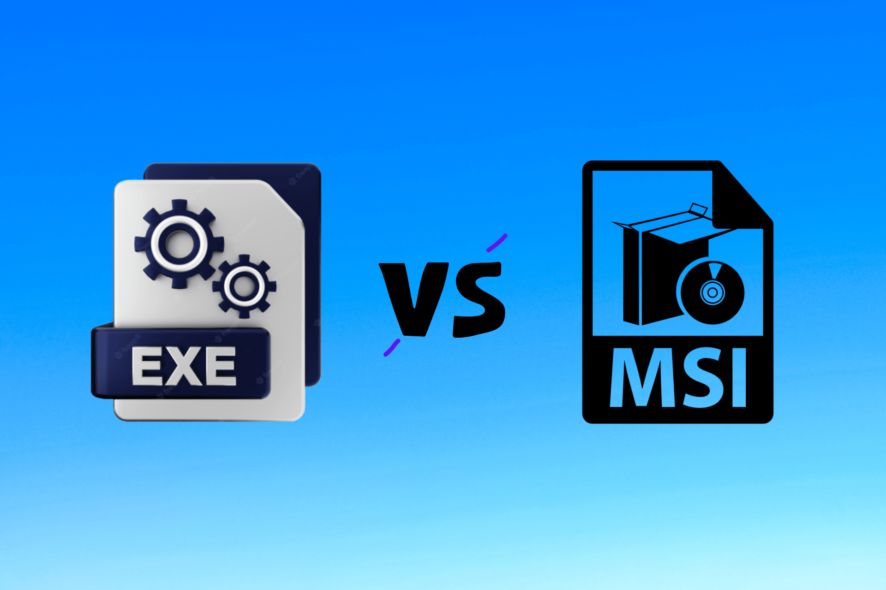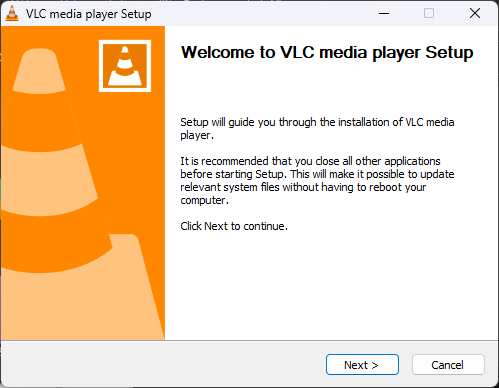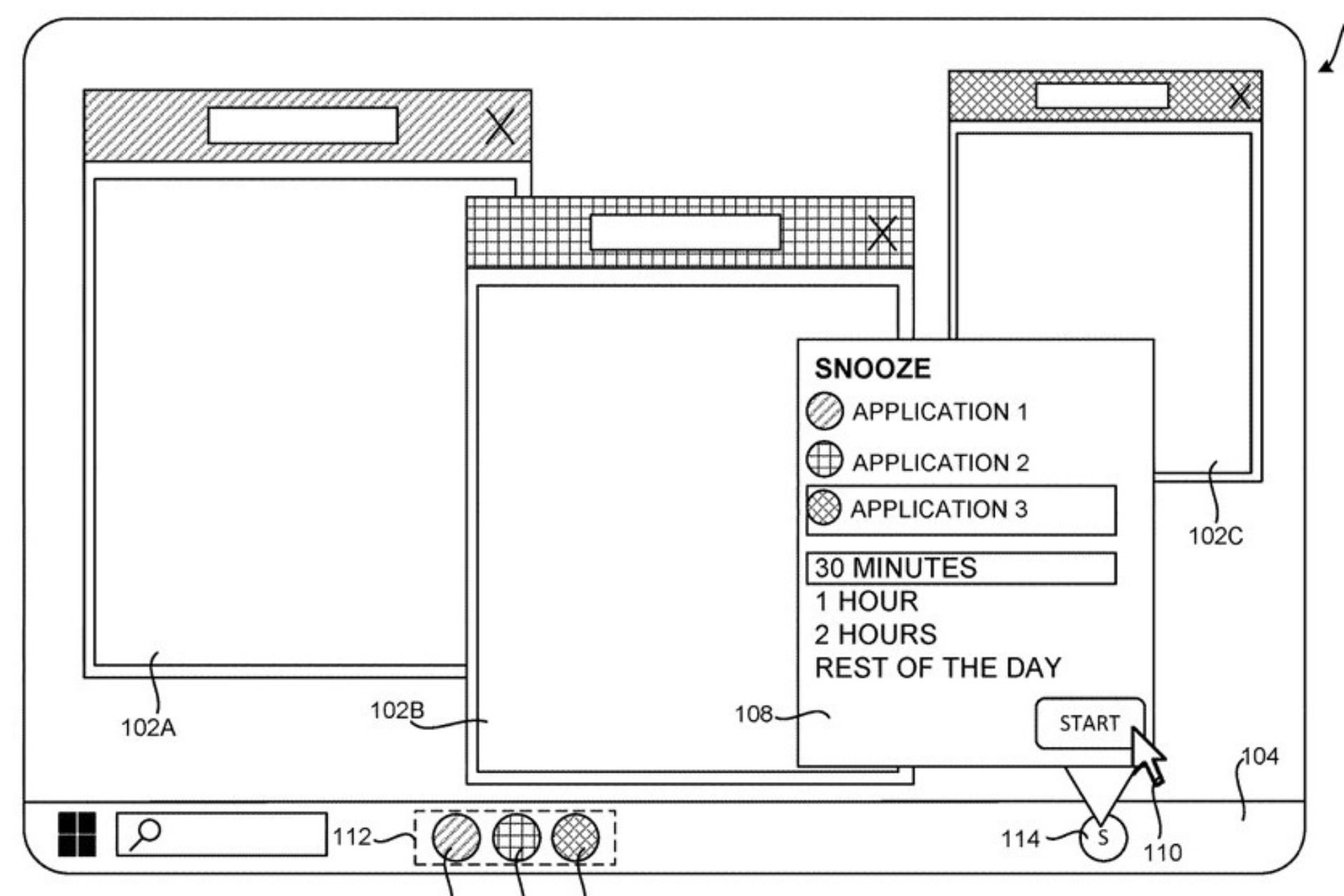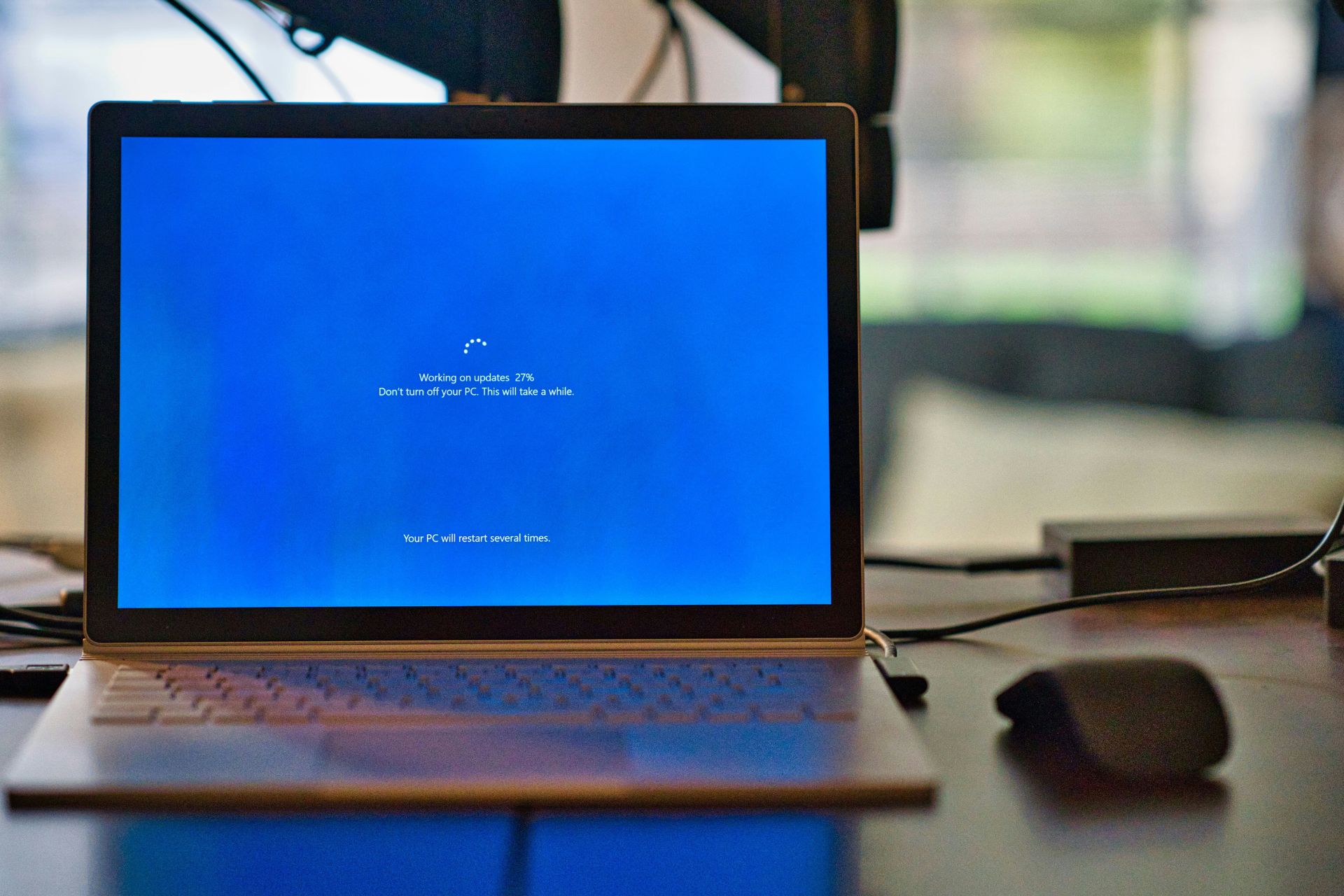EXE Vs MSI: What are The Differences & Which is Better?
Both are file formats that are used to install software
5 min. read
Updated on
Read our disclosure page to find out how can you help Windows Report sustain the editorial team Read more
Key notes
- EXE means executable file, which can be run or executed by a computer.
- MSI stands for Microsoft Installer, a file format developed by Microsoft.
- This guide will discuss the differences between the files.

To install software on Windows, you need to download an installer on your computer. There are two most popular installation file formats .exe and .msi. Both formats serve the same purpose of installing software. However, a few differences make one better than the other in certain scenarios.
In this guide, we will compare the EXE file vs the MSI file side by side, explain their differences, and which to choose in what scenario. Let’s start!
What is an .EXE file?
.EXE is an executable file that can be run on your computer to install or launch a program. It is a self-extracting archive with the necessary files and instructions to install the software on your computer.
EXE files can be easily downloaded from the internet or installed using a storage device. To execute the file, you need to double-click it, and it will extract the essential files and launch the installation wizard.
What is an .MSI file?
MSI stands for Microsoft Installer (now called Windows Installer Package), a file format developed by Microsoft for installing software on Windows OS. These are database files with necessary information about software, including program files, registry keys, and settings.
They offer customized installation options suitable for enterprise environments where software deployment needs to be automated & centrally managed. Software developers use them to create and distribute software packages that can be installed on different Windows machines.
What are the differences between EXE and MSI files?
1. Installation process
The installation process of EXE and MSI files is similar. Both launch the installation wizard when initiated, guiding you through the installation process.
However, MSI files come with customizable options that are easier to automate for large-scale deployments.
2. Installation location
EXE files can be installed anywhere on your computer, including C drive, desktop, or any other location you choose.
However, the MSI file is typically installed in the Windows installer folder, a system folder inaccessible to users.
3. Installation options
Unlike EXE files, MSI files come with many customization options, such as selecting which program components to install, creating desktop shortcuts, or adding the program to the Start menu.
4. Software dependencies
EXE files are standalone programs that don’t require any other software or dependencies to run. On the other hand, MSI files may have dependencies that need to be installed before the actual program.
This is because MSI files use Windows Installer services, which need specific components on the system before initiating the installation.
5. Uninstallation
When you install a program using an EXE file, you can delete the program file via Programs & Features option on Windows.
However, for MSI files, that process is a bit complicated & time-consuming. You need to use the Windows Installer service to remove the program.
6. Customizability
MSI files can be modified using several tools and technologies to include custom installation options, including choosing the software’s features, registry keys to change, or files to install or delete.
On the other hand, EXE files are generally preconfigured by the software vendor and can’t be easily modified.
7. Automation
MSI files are designed for automated software deployment and management. These files can be installed on multiple computers without user interaction; therefore useful for large-scale software deployments.
However, EXE files require user interaction to install and configure software on a Windows computer.
8. Security
MSI files can be digitally signed and verified, ensuring they are from a trusted source and are not tampered with; hence, they are more secure.
On the other hand, EXE files can be modified with ease and could contain malicious code.
9. Size
MSI files contain more information & metadata about the software, including configuration data, dependencies, and installation options; hence are larger.
However, EXE files only contain the executable code and necessary resources for a software application.
.EXE file vs .MSI file: Which is better?
There can’t be one answer to this question, as choosing the file format depends on the needs and specific requirements of the installed software. Here are a few scenarios which can help you understand better:
- If you installing software that needs customization during installation, an MSI file is better as it comes with various customization options.
- If installing software that needs to be managed centrally across several computers in an organization, then you need an MSI file. You can use software deployment tools such as Group Policy to manage them.
- An EXE file is better if you use the software on a personal computer as it is less complex and easy to install.
To conclude, upon comparing the EXE file vs MSI file, it is evident that choosing one has its benefits or disadvantages. EXE file is useful for a single computer, whereas an MSI file is preferred for deploying software on multiple computers.
So, the choice depends on the software requirements you want to install.
Which one would you prefer and why? Feel free to share your thoughts on this in the comments section below.










